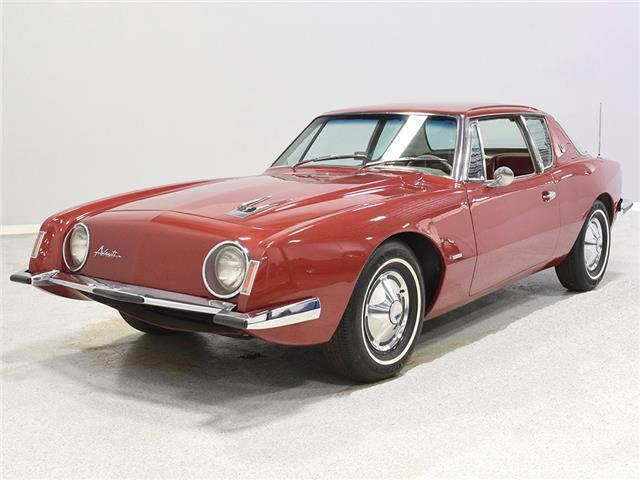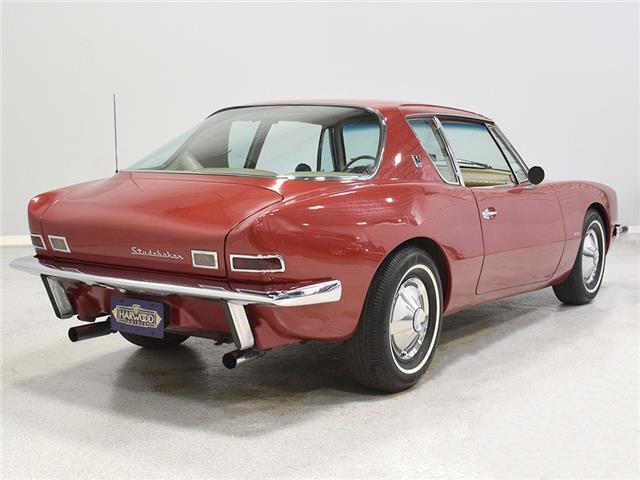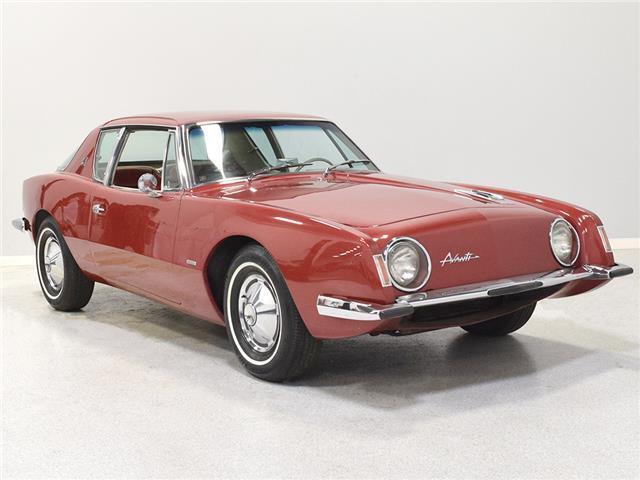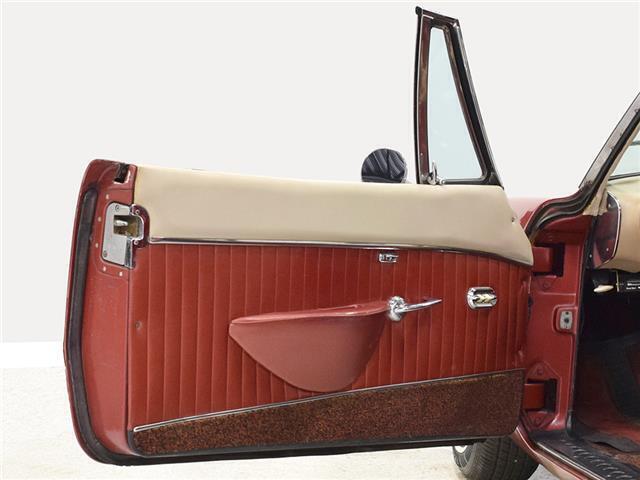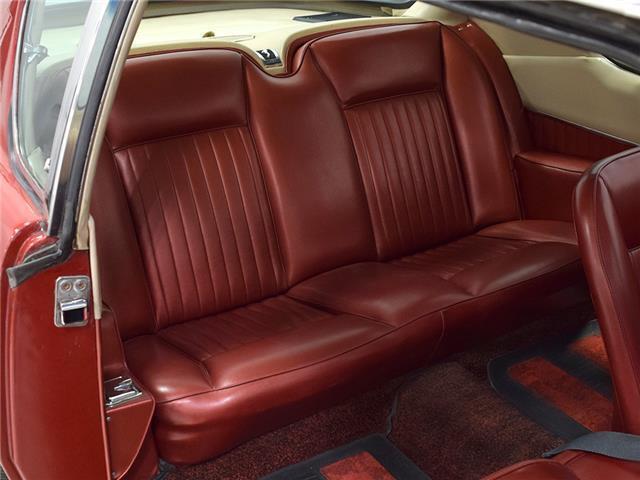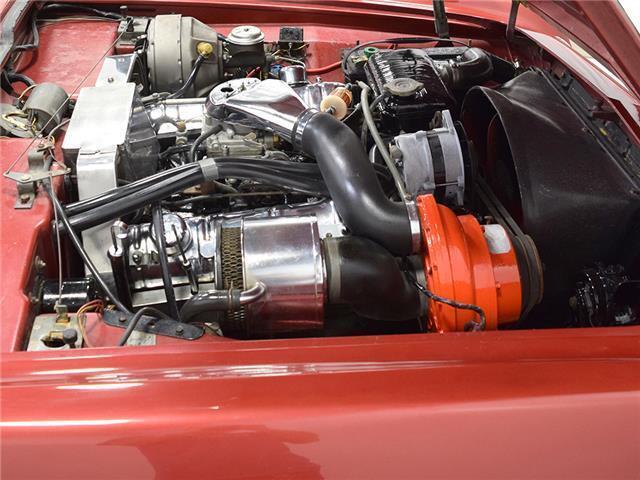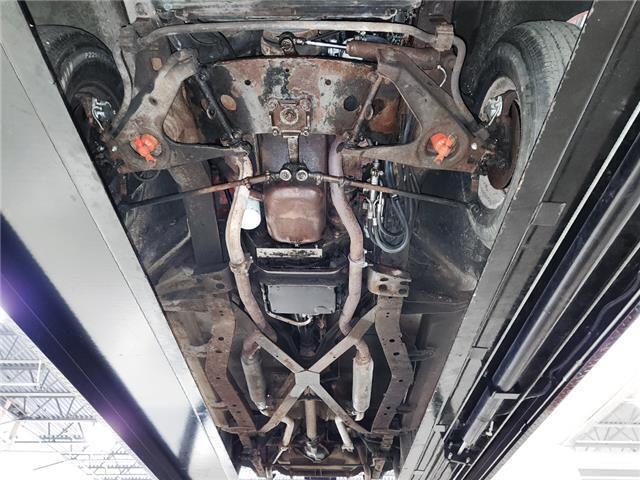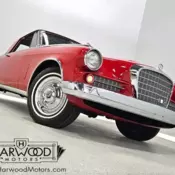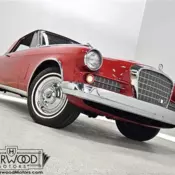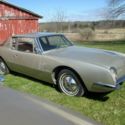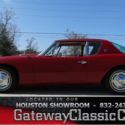1963 Studebaker Avanti R2 1595 Miles Red Coupe 289 cubic inch V8 Automatic
| Make: | Studebaker |
| Model: | Avanti R2 |
| SubModel: | R2 |
| Type: | Coupe |
| Year: | 1963 |
| Mileage: | 1595 |
| VIN: | 00000000000000000 |
| Color: | Red |
| Engine: | 289 cubic inch V8 |
| Fuel: | Gasoline |
| Transmission: | Automatic |
| Drive type: | Coupe |
| Interior color: | Red |
| Vehicle Title: | Clean |
1963 Studebaker Avanti R2 Additional Info:
Vehicle Original VIN : 63R2619Real R2 supercharged Avanti. Largely original survivor in excellent condition. Solid “hog troughs” and floors. Beautiful interior with full gauges and factory switchgear. Runs and drives well. Studebaker’s exciting Avanti is still affordable—for now!
Aimed somewhere between the Corvette and the not-yet-born Mustang, the Avanti was intended to be a high-quality personal car with muscle, a bit more upscale than the Corvette but not as pretentious as, say, a Jaguar. Sadly, it wasn’t enough to save Studebaker, but the brilliant Raymond Loewy design remains as dramatic as ever—so much so that multiple companies sprang up in the decades since to continue the Avanti name. This is an original, however, and it’s a real R2 supercharged car to boot. Doing some automotive archaeology, we’re fairly certain this is a mostly original car perhaps with one older repaint done decades ago. It does appear to be the car’s original color and a bright red Avanti is always a striking machine. The fiberglass bodywork is in fantastic condition with no serious cracks or other damage and it fits together better than you might expect. The round headlights are a sign that this is an original Avanti, and the slender factory bumpers are just too cool. The chrome is in very good condition with no pitting on the emblems and unique hood trim and it does come by those ‘Supercharged’ emblems honestly. That irreplaceable wrap-around rear window is unmarked and even the weather seals are holding up well. This car seems to have led a very good life.
We believe the interior is mostly original and it remains in outstanding condition. It features highly detailed pleated door panels, bolstered bucket seats with just a hint of wear on the outer bead, and factory carpets. The light-colored dashboard coordinates with the rigid headliner and door panels to make the Avanti’s interior feel bright and airy, and you can see the aircraft-inspired design everywhere you look. The wrap-around instrument panel features a very complete set of instruments, and they’re all operation except the clock. The center console houses cool chrome levers for the heater and defroster, while an overhead consolette has more rocker switches for the headlights, instrument lights, and other functions. The seats are still firm and comfortable and aside from a little fraying on the driver’s outer bolster, all the seating surfaces are excellent. Even the steering wheel remains undamaged, which is a real rarity with these early plastics. A delicate chrome shifter controls the Borg-Warner 3-speed automatic transmission underneath and seat belts were added at some point for safety. There’s also a good-sized trunk out back that’s fully carpeted—another nod to the Avanti’s up-market mission.
The 289 cubic inch V8 is a correctly stamped RS supercharged unit. Studebaker didn’t use “matching numbers” in the familiar sense, but we have no reason to believe this is not the car’s original engine. The bright orange Granatelli/Paxton supercharger is easy to spot in the engine bay, along with the chrome air cleaner housing and duct work feeding the 4-barrel carburetor on top. It’s a tight fit, but it’s obvious that Studebaker engineers cared about making this special car look special even under the hood. There are chrome valve covers and polished shielding for the ignition system that looks a lot like they borrowed the idea from the Corvette. Power steering and power brakes are part of the package, so the Avanti is incredibly easy to drive and even with the supercharger, it’s quite docile. There’s a good hit of torque available at almost any speed and the Avanti was advertised at the time as the world’s most advanced production car (whether that was true is another story). The Borg-Warner 3-speed automatic is a good pairing with the supercharged V8, mostly staying out of the way with smooth shifts, and we believe there are 3.31 gears out back, giving this car great highway cruising capability. The suspension breaks no new ground, but it does feature front disc brakes, which were cutting-edge tech for 1963 (although even with power assist, they still need a pretty good shove). As an unrestored car, the undercarriage is a bit grimy but there is no structural rust in the critical “hog trough” support structures that run under the rocker panels and the frame is incredibly robust. A dual exhaust system with glasspack-style mufflers sounds awesome and you can see signs of conscientious maintenance, including recent front brake calipers and hoses, newer shocks, and right-sized 225/75/15 whitewall radials on the original wheels with factory hubcaps.
Documentation includes the original owner’s manual.
These are still dramatic cars that command attention wherever they go. This is a solid, clean, ready-to-use example with the desirable R2 supercharged engine. With prices on the move, if you’ve ever wanted an Avanti now is the time to grab a good one. We’ve priced this one aggressively so it won’t be around for long. Call now!
Harwood Motors always recommends and welcomes personal or professional inspections of any vehicle in our inventory prior to purchase.


